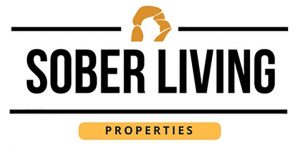Sober Housing
Sober living housing provides a drug and alcohol-free environment that allows clients to successfully transition into a new sober lifestyle.
Outpatient Programs
Outpatient programming provides flexibility, and varying intensities, while receiving therapy and learning important recovery skills.
Recovery
Recovery from a substance use disorder involves a comprehensive approach that includes evidence-based therapies and complimentary experiential activities.
Outpatient Addiction Treatment
When you make the life-changing decision for a sober life, you open the doors for success. The next step is taking responsibility for your addiction and asking for the help you need to achieve sobriety. Sober living facilities can be a valuable tool for maintaining sobriety, but before you can maintain sobriety, outpatient treatment can help you become sober.
The sister company of Sober Living Properties, Next Level Recovery, offers outpatient addiction treatment programs that helps people reach sobriety in a non-clinical outpatient setting. The outpatient treatment at Next Level Recovery is patient-centric and flexible. People are treated as respected outpatient clients who have made an important decision to alter the course of their life to meet healthy goals.
Next Level Recovery takes a practical approach to outpatient addiction treatment, assisting clients who are actively engaged in the everyday activities of work and play. The professional and multi-disciplinary team at Next Level Recovery works with clients, on an outpatient basis, to develop a plan for success and to implement strategies that will lead them toward a healthier life that is free from addiction. Next Level Recovery’s outpatient service staff works with individuals and families to assist in recovery on the psychological, social, and physical levels.
The wheel that powers Next Level Recovery relies on four powerful spokes. The first spoke – crisis intervention – helps families in crisis reach out to their loved ones with a positive and effective helping hand. The second spoke is the diagnosis of underlying conditions. This is an important spoke in the wheel, providing a comprehensive diagnosis of the issues behind the addiction. Family counseling forms the third spoke and prepares the road toward healthier and more honest relationships. All of the spokes are fortified with the fourth and final spoke – local resources – which enables our clients to reach out to the community and receive the help they need for continued sobriety.
Contact Next Level Recovery to find out how you can reach your sobriety goals using our powerful and effective outpatient addiction treatment approach.
Click or Call NOW for help: (801) 386-9799
Sober Living Checkpoints
Sober Living Properties offers a series of specific checkpoints that enable individuals at our transitional housing properties to progress through the stages of early recovery and return to society with stronger life skills and healthier habits. Residents reach checkpoints by meeting specific criteria and following transitional housing rules, which include:
For individuals in early recovery, there is a real risk of relapse. The critical early months following treatment are the most vulnerable to relapse. In fact, according to the National Institute on Drug Abuse, relapse rates during the first four years after rehab are 50%-90% for individuals in alcohol recovery and 40%-60% for those in drug addiction recovery. Even relapsing the day one leaves the rehab facility is a common occurrence, unfortunately.
Staying in sober living housing for a specified period can act as a protective factor to relapse. By eliminating many of the temptations or triggers one might encounter after leaving rehab, and emphasizing fellowship and accountability, sober living is an excellent housing option in early recovery.
A fully accredited sober living and transitional housing facility, Sober Living Properties takes relapse prevention to the highest level by maintaining secure, well-managed housing. There are many benefits to residing in a sober living property for a period of time following completion of a rehab program. These include:
Accountability
Our model for living is based on accountability and empowerment. Our staff believes, practices, and teaches that accountability is the foundation for personal power, which grows and flourishes as our clients grow in the process of early recovery.
Accountability to the house manager and fellow residents is achieved by participating in daily chores and responsibilities, and following house rules. This demonstrates respect for the other housemates and encourages mutual accountability.
Accountability to one’s recovery is also included in continuing to practice the actions that sustain sobriety. Residents in the sober living or transitional housing are expected to maintain a commitment to recovery.
Peer Support
Relationships strengthen the foundation of sobriety as transitional housing residents learn to work respectfully together to create a clean living environment and engage in peer-related programs that encourage teamwork and community. Transitional housing residents build connections and gain control of their lives through the guidance of a structured sobriety program.
The social support piece of recovery cannot be overstated. After getting sober, feelings of loneliness and depression are very common. There are adjustments to be made in early recovery, not only physical and psychological adjustments, but also lifestyle changes that will support recovery. When someone makes the decision to reside in a home that is free of drugs and alcohol they should expect that the other housemates will have the same commitment to sobriety. This establishes a foundation for mutual social support.
Put Recovery Skills to Use
Fresh out of rehab, it is sometimes a mistake to return back to one’s home community, especially if it lacks a supportive environment. Sober living provides the opportunity to practice the recovery skills learned in treatment. It takes time to create new healthy habits by putting these skills into use.
Sober living offers an excellent opportunity to use conflict resolution skills, to work on communication skills, and the practice stress-reduction techniques learned in treatment. This hard work ultimately earns the client education and wisdom to make better choices as they define a new and more fulfilling life back in their own communities later.
Establish Healthy Routines
While in active addiction, an erratic lifestyle is the norm. Poor sleeping habits and diet as well as not adhering to a regular daily schedule can lead to poor health and other negative consequences. While in sober living, clients have the chance to establish new healthy routines.
The house will likely have a set wake time and a curfew, making it easy to stick to a regular sleep schedule. In recovery, restoring health should be a top priority, so the sober living home environment can provide opportunities to have regular, healthy home-cooked meals. Sober living and transitional housing often mandates that the residents secure employment, which adds to the ability to maintain a daily schedule.
Relapse Deterrent
Early recovery is a very vulnerable to relapse occurrence. Individuals are sometimes ambiguous about sobriety, or they may struggle with cravings or other triggers to use drugs or alcohol again. In sober living, the regular drug and alcohol testing becomes a powerful deterrent to relapse. No one wants to get kicked out of the house, so knowing there will be testing helps keep the client from falling down. A well-managed sober house will provide regular testing and enforce the zero tolerance policy for the benefit of all house residents.
Community Engagement
Our transitional housing residents are surrounded by supportive and active communities. As residents work and engage with the members of local neighborhoods, they often develop meaningful relationships that can last a lifetime. Life after rehab is all about taking the steps to integrate back into one’s regular community while maintaining sobriety. Living in a sober home allows ample opportunity for practicing these interactions with others while in a safe and supportive environment.
Embracing the Sober Lifestyle
Following completion of a rehab program, it isn’t rare for the individual to struggle initially with lingering doubts about the decision to get sober. Sobriety demands that the person make fundamental changes in their lifestyle, which includes eliminating certain people from their lives who might be a threat to sobriety. Loneliness in early recovery is common. It is also difficult to give up many of the activities that had also involved imbibing. Many of our cultural celebrations and events involve alcohol use.
Sober living allows a person to start practicing a substance-free lifestyle. In sober living, friendships rooted in sobriety can be made, which will often become life long relationships. Because regular attendance at recovery meetings is also part of the sober living lifestyle, the meetings provide additional opportunities to make new sober connections, as well as participate in volunteer activities or sober events.
Case Management
When transitional housing residents leave Sober Living Properties, they are ready to successfully transition back into the community. Some individuals may benefit from social services, legal services, or housing services after leaving transitional or sober living. Sober Living Properties offers professional assessments and can answer questions about additional treatment services that may assist each individual transitional housing resident to reach all of their potential while living with us in our sober home.
Finding Joy in Recovery
Sober living provides a safe retreat, absent of drugs or alcohol, which acts as a bridge between the structured rehab environment and the full freedom of regular life. Spending a certain period of time in sober or transitional housing provides an excellent opportunity to reinforce sobriety and adjust to a completely new lifestyle. What may begin as an awkward or uncomfortable beginning when taking those early steps in recovery is bound to evolve into an authentic sense of a joyful, new lease on life. Discovery the promise of a stable, productive life by starting that journey in Sober Living Properties.
For Outpatient Treatment & Services Click Here for Next Level Recovery Call (866) 793-1679 to learn more about our recovery services.
Sobriety Houses Conveniently Located Across the Salt Lake Valley
Sober houses are comfortably furnished and conveniently located in peaceful residential neighborhoods settings close to Freeway Access and major bus lines. Recreational opportunities include a local gym as well as other sports clubs, outdoor sports, fishing, hiking, skiing, swimming, rock climbing, and many others.
Sober Living Amenities and Benefits
Residents enjoy the advantage of a high employment rate, which they often achieve through relationships in the house or in the community. Regular house meetings facilitated by our friendly and accessible sober house management team eases communication within the house and provides reliable support and structure for house members. Amenities include fully furnished rooms, all-purpose living room with fireplace and television, game room with pool table, digital cable, wireless internet access, private phone line for residents, full laundry facilities, ample parking and more.



